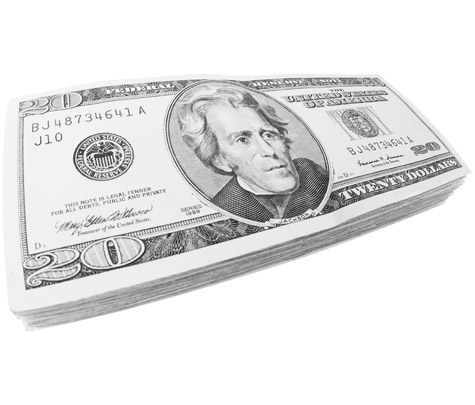
Most other states, in addition to cutting programs, have recently enacted tax increases, as they — and Maine — did in previous recessions. |
Political will lacking
Ideology, though, rather than practical economic policy, controls how the governor and his closest fiscal allies, especially the Republicans in the Legislature, respond to the needs of the recession. The right-wing Maine Heritage Policy Center, per usual, applauded Baldacci’s December budget cuts. Like the GOP in Washington, most Maine Republican lawmakers have sealed themselves off in an ideologically hermetic box, increasingly seeing government as Satanic Socialism except when the socialism provides tax breaks and other giveaways to the wealthy and the corporations, as happens in Maine to the tune of hundreds of millions of dollars a year (see “Tax Break Heaven,” by Lance Tapley, February 20, 2008).
But what of the Democrats in the Legislature? Why won’t they consider tax increases, especially an alternative proven popular with their party’s counterparts in other states: raising income taxes on the well-to-do? Such a move would make the tax system more “progressive” (when the rich pay proportionally more than the poor). Now, the bottom 20 percent pay more (15.4 percent of their income) than the top 10 percent (10.6 percent) in total state and local taxes, according to the state tax bureau, Maine Revenue Services (see “The Wrong Man for Hard Times,” by Lance Tapley, February 4, 2009). And there’s not even a state income-tax bracket targeting the rich. They pay the same 8.5 percent as a couple making $40,000 a year.
Jacking up their taxes a bit would collect a pile of dollars, too. A year ago at the Portland Phoenix’s request Maine Revenue Services calculated that if the top rate were raised to 12 percent for a couple’s income in excess of $200,000, $204 million more would be raised over a two-year budget cycle (see “Hey Guv: Stop Slashing!” by Lance Tapley, December 31, 2008).
But Maine Democrats appear different from their colleagues in other states. First, there’s a big obstacle to raising taxes leading them: Baldacci. Even if Democratic legislators wanted to raise taxes, they’d have to overcome, with a two-thirds vote of each chamber, the governor’s likely veto. While the House is almost two-to-one Democratic, the Senate has 20 Democrats to 15 Republicans.
But more important, after seven years of leading Democrats rightward, Baldacci has succeeded in taking them quite a distance. Despite the state’s fiscal bind, in recent years legislative Democrats voted to give the corporations new tax breaks and, in floor votes, to repeal the estate tax, which affects only millionaires (this last intention was in the end blocked by the Appropriations Committee).
Given this history, Christopher “Kit” St. John, of the liberal Maine Center for Economic Policy, isn’t sanguine about the prospects for a tax hike this year. Only “a fairly small group of people” in State House, he says, is looking at how a previous Legislature dealt with a similar massive budget shortfall in the recession of the early 1990s. Besides making big cuts, the earlier Legislature raised the sales tax by one percent (which lasted for eight years) and slapped a 10-percent across-the-board surcharge on the income tax (which lasted two years). Remarkably, those tax-increase bills were passed by two-thirds majority votes of Democratically controlled chambers. It was a contentious time, but a Republican governor, John McKernan, signed them.
Those tax increases were hardly progressive, but they were when compared to cuts of state services. Times indeed have changed. After Baldacci’s press conference, Appropriations Committee Senate chairman Bill Diamond, a Democrat, issued a statement: “We understand the difficulties and the hardships these reductions create for Maine people.” But, he added, “We have no other choices.” Not much wiggle room there.
Democrats also have hamstrung themselves with the “tax-reform” bill they passed last session. Designed to reduce the precipitous fall of sales-tax collections in a recession, it broadens the tax’s base to cover more goods and services. But, to make it “revenue neutral,” it flattens income-tax rates. Democrats made the case that gifting the rich with lower income-tax rates would attract them and their businesses to Maine. The bill lowers the 8.5 percent top rate to a one-size-fits-all 6.5 percent (except 6.85 percent for couples making more than $250,000 a year) and raises the lower rates (but provides credits for low-income people).
Responding to the squeals of businesses that don’t want to have to start collecting sales taxes, Republicans amassed the people’s-veto signatures necessary to put the bill on the ballot in June. With this referendum pending, it’s now “politically more difficult” for Democrats to launch another reconfiguring of taxes, St. John observes.
Ben Dudley, who heads up a coalition of liberal groups called Engage Maine, agrees, but says “that bill was a long-term rebalancing act,” and now the question is “how to get through” the next couple of years. His solution: put “revenue” into the equation. But he has “a very modest level of expectations of what we can accomplish.”
Lizzy Reinholt of Maine Can Do Better, a grouping of providers of services to the disadvantaged, uses the current liberal buzz phrase, a “balanced approach,” in arguing for tax increases to balance cuts, mentioning a $1-per-pack increase in the cigarette tax, which health groups have proposed, and a possible one-penny increase in the sales tax.